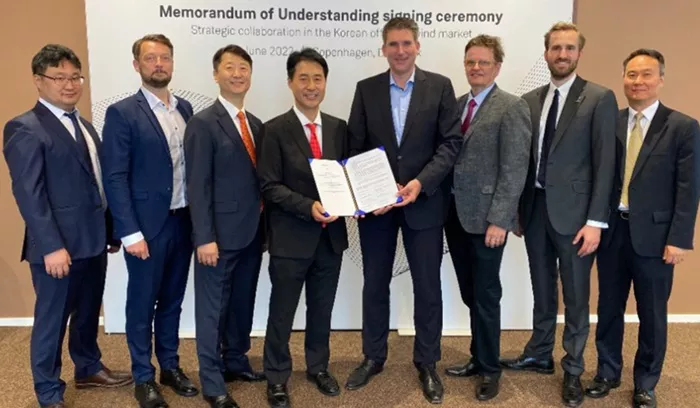Doosan Enerbility has officially entered into a Memorandum of Understanding (MoU) with Siemens Gamesa and Equinor to collaboratively develop the 750MW Ulsan Bandibuli floating offshore wind project, located off the coast of Ulsan, South Korea.
As part of the agreement, Siemens Gamesa will provide 14MW large-scale wind turbines, while Doosan Enerbility will assemble the nacelles at its facility in Changwon.
Seungwoo Sohn, CEO of Doosan Enerbility’s Power Services Business Group, emphasized the significance of this partnership, stating, “The collaboration between Doosan and Siemens Gamesa is recognized as a highly effective model for accelerating the growth of the Korean domestic wind market. This MoU further strengthens our alliance and will enhance our contributions to Korea’s offshore wind power ecosystem.”
The Ulsan Bandibuli project, also known as the Firefly wind farm, was initiated when Equinor signed an agreement with Ulsan city in May 2019. It will encompass two 75 square kilometer areas located 70 kilometers offshore.
Equinor plans to implement a low-draft semi-submersible floating wind concept known as Wind Semi, designed specifically for the offshore conditions in South Korea. The mooring systems will be tailored for the water depths in the Ulsan area and engineered to withstand typhoons.
In a related development, Equinor and Korea Electric Power Corporation (KEPCO) signed a contract this October for the transmission of power generated by the Bandibuli project. This agreement aligns with five other floating offshore wind power initiatives underway in Ulsan, aiming to connect a total of 6GW of clean energy to KEPCO’s grid.
Doosan Enerbility currently offers a product portfolio that includes wind turbine models with capacities of 3.3MW, 5.5MW, and 8MW. The company first collaborated with Siemens Gamesa in June 2022 through an MoU aimed at fostering strategic ties in the Korean offshore wind market, followed by a framework agreement for a strategic partnership in February 2023.
Related topics:
- Titan Unveils Revolutionary Flat-Proof Tire Technology at Equip Expo
- Terex Acquires Environmental Solutions Group for $2 Billion
- Vanguard Showcases Innovative Engine and Battery Technology at 2024 Equip Expo

